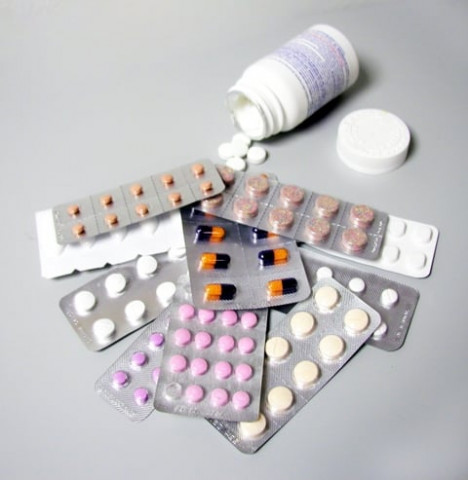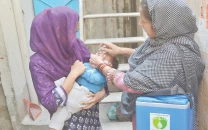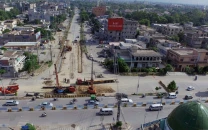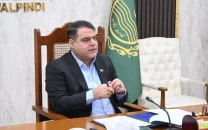Pill popping: Dealing with Punjab’s latest drug problem
Officials to seize supplies of banned drugs from health centres.

Medicines by the companies enlisted by the Punjab institute of Cardiology (PIC) have been stopped by the administration of the Multan Institute of Cardiology (MIC).
Earlier in the week, patients were being provided with free medicine by the administration of the hospital but several patients protested against reports of the medicines being hazardous and incidents of certain patients dying in Lahore.
“Now the patients have been requested that they be provided alternative medicines from the market for the time being,” said MIC executive director Dr Ali Raza Gardezi. Dr Gardezi issued official instructions in this regard during a meeting about the safety and the welfare of patients at the institute.
Regarding the queries of the patients, hospital administration has issued a list of medicines that should no longer be purchased by patients and hospital officials said that they are taking all possible precautions in this regard. “The medicines to avoid include Cardiovestin (Simvastatin), Alfagril (Clopidogrel), Concort (Amlodipine) and Soloprin (Aspirin),” said chemist Mujahid Buksh at the hospital.
Meanwhile, a total of 29 patients who have been under treatment in PIC Lahore have been given special instructions to refrain from using the prescribed medicines which have caused problem in the PIC, Lahore hospital. “We were issued warnings from the Lahore hospital to take similar precautions in Multan and we are doing our best to take all the necessary steps in this regard,” said a Health Department official Dr Sadiq Ameer.
The Health Department has issued instructions to dispose of the tainted stock of medicines after several patients in Multan protested against the use of the drugs. “Some patients even set fire to a stock of the medicines that we were shifting outside,” said a nurse at the hospital. “Most of the medicines that are included in the list are used for post operative care for heart patients,” said Ameer. All patients at MIC have been also instructed to have a detailed check up as a precautionary measure. “We are conducting a full examination for patients who have been using the medicine for longer than a few days,” he said.
Following a detailed check-up, so far 18 patients who have consumed complete doses of the mentioned drugs have not exhibited any reactions. “We are monitoring their conditions closely,” said nurse Ameena Shah.
The MIC has set up three counters to collect the concerned banned medicines from patients admitted in different hospitals throughout the district.
The health secretary has also called for a daily report regarding all patients coming into Nishtar Hospital to ensure the safety of patients. According to a report submitted by Nishtar Hospital officials, no drug reaction cases have been reported so far but they are strictly monitoring the situation.
The health secretary has also issued instruction to develop a complete log of all patients who have been consuming or have already consumed the banned medicines. “We require a detailed medicine intake record of patients who were under treatment in PIC, Lahore and we will need similar reports from MIC and other cardiac facilities in the province,” he said.
A total of 214 patients from Vehari have been taking the prescribed medicine and are being monitored by local health authorities for symptoms. According to the executive district officer (EDO) health Dr Khalid Majeed, “We have confiscated the medicines and are closely monitoring the condition of the patients.”
Meanwhile, health officials have also launched a crackdown all over the province. “All medical stores have been asked to hand over the existing supply of the banned drugs. We need to suspend all usage of the said drugs until the government issues a final report,” said Health Department official Mujeeb Kamran. Health officials have been given instructions by the health secretary to focus most of their efforts on rural areas and medical stores in the outskirts of urban areas.
The district administration has received similar instructions and is raiding different localities with drug inspectors all over Punjab.
Published in The Express Tribune, January 26th, 2012.



















COMMENTS
Comments are moderated and generally will be posted if they are on-topic and not abusive.
For more information, please see our Comments FAQ